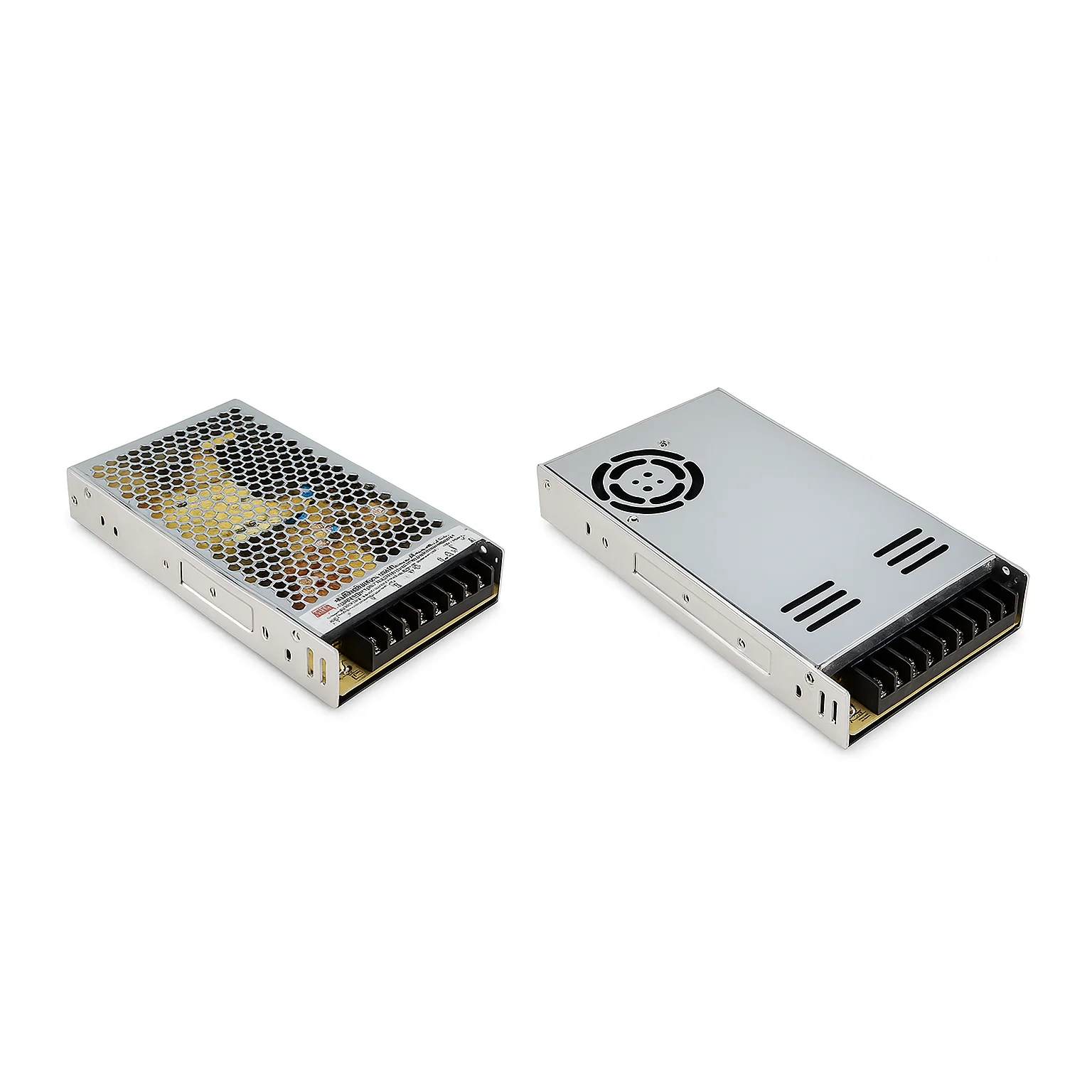In the assembly and maintenance of LED displays, module accessories often play a crucial role. Although they may appear to be just cables, connectors, or distribution boards, they are indispensable in ensuring system stability and long-term durability. For different application scenarios, whether indoor displays or outdoor billboards, choosing the right accessories can effectively prevent signal interference, voltage drop, and installation risks. So, what should we focus on when selecting different module accessories?
Match the Right Power Supply to Ensure Stable Operation
In an LED module system, the choice of power supply and power cables directly affects the stability and lifespan of the display. Depending on application needs, the following aspects should be considered:
-
General scenarios: Most modules require 5V power supply; choosing a stable and efficient power supply is sufficient for daily use.
-
Limited space: For compact installation environments, ultra-thin power supply designs are easier to conceal, making layouts more aesthetic.
-
Special voltages: Some projects require non-standard voltages, in which case specially matched power supplies should be selected.
-
Outdoor applications: In environments with high humidity or large temperature differences, power supplies with moisture-resistant features are more suitable for long-term use.
At the same time, the connection between the power supply and modules is equally critical. For example, a one-to-two power cable can reduce wiring volume, making power supply more efficient and safer.
Maintain Smooth Signals with the Right Connection
LED displays rely on high-speed data transmission to maintain complete and smooth visuals. The choice of signal cables and interfaces directly determines system stability:
-
Flat cables: Common specifications include 16P and 20P, with lengths ranging from 400mm to 1200mm. Since different control cards and module interfaces may vary, compatibility must be ensured.
-
Network transmission: Large screens often use network cables. Pre-molded RJ45 cables can reduce the risk of poor contact caused by manual crimping.
-
HUB boards: Different control systems (such as NovaStar, ColorLight, Huidu) have varying compatibility requirements for HUB boards, so it is important to confirm in advance.
Choose More Durable Accessories Based on Usage Scenarios
Different installation environments impose different requirements on accessories:
-
Outdoor environments: Accessories should be waterproof, moisture-proof, and temperature-resistant. For example, power cables with O-ring terminals are more suitable for outdoor use.
-
Indoor environments: Flexibility and aesthetic wiring are more important. Options include standard red-and-black power cables or UL-certified cables.
-
Long-term stability: Wire gauge is equally important. Thicker specifications (such as 3×2.5mm² or 3×14AWG) can better carry current, avoiding overheating and voltage drop.
The right accessories not only improve installation efficiency but also extend the overall system’s lifespan.
Recommended Accessories List
| Recommended Model | Application Features |
|---|---|
| Mean Well LRS Series LRS-200-5 / LRS-350-5 | Stable output, suitable for conventional indoor LED modules |
| Mean Well UHP Series UHP-200A-5 / UHP-350-5 | Ultra-thin design, convenient for projects with limited space |
| Mean Well UHP-200A-4.5 | Meets special 4.5V voltage requirements for modules |
| Mean Well RSP Series RSP-200-5 / RSP-320-5 | Moisture-resistant design, suitable for outdoor or high-humidity environments |
| RD Series MD200PC5 / MQ300PC5 | Flexible use for indoor and outdoor display projects |
| 5V 1-to-2 Power Cable 750mm/350mm | Dual output, simplified wiring, suitable for outdoor modules |
Choosing the right module accessories not only improves installation convenience but also ensures the long-term stable operation of the entire display system. We hope this reference will provide practical guidance for your project selection.

